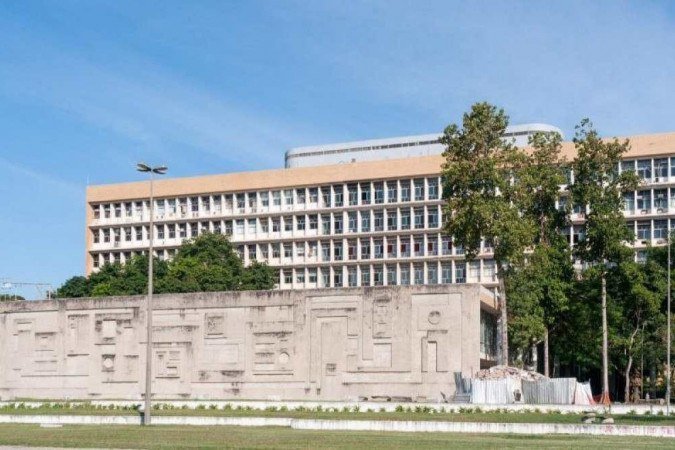Posted on 05/13/2021 20:23

UFRJ Building, which may halt activities in July: Scientific production seriously threatened – (Credit: Diogo Vasconcellos / CoordCOM / UFRJ)
A letter written by three professors from the Federal University of Rio de Janeiro (UFRJ) highlighting the limitations of the science and technology square in Brazil. The document, signed by Marcus Oliveira, Sergio Ferreira and Stevens Ryan, reveals that the National Fund for Scientific and Technological Development (FNDCT) has about 90% of the budget earmarked, specifically in one of the world’s largest health crises – the COVID-19 pandemic.
The statement calls for the speedy enactment, by the Federal Senate, of Supplementary Law 2021/177, which forbids emergency resources from the FNDCT – the fund responsible for allocating resources to the country’s scientific and technological development. The Senate approved the measure on March 26, the day after approval of the text of the Annual Budget Act (LOA) 2021.
However, the 2021 LOA was approved before the enactment of Law 177, which allows for more liquidity in the maintenance of the FNDCT. In practical terms, this year’s budget from the federal government does not include full funding for the fund. This means that 90% of the resources for developing science and technology are conditional, “he explained to Mail Marcus Oliveira, Associate Professor at the Institute of Medical Biochemistry at UFRJ and Associate Member of the Brazilian Academy of Sciences (ABC). According to the letter, this ratio is equivalent to R $ 5.1 billion in investments for scientific purposes.
We have now seen, during the pandemic, how dependent countries are on advances in science and technology. Said Sergio Ferreira, professor at the Institute of Biophysics Carlos Chagas Filho at UFRJ and a member of ABC.
The Brazilian Association for the Advancement of Science (SBPC) explains that the LOA has been approved with the resources still being allocated in the reserve, and thus there are doubts about how to adjust the budget so that it does not respect the tax rules. “No FNDCT program is dependent on supplemental credit in 2021. However, due to the gap between the veto and the approval of the LOA, the resources of the Fund are still allocated in contingency reserves, totaling R $ 5.049 billion, 17.91% more than in LOA 2020, ”indicated the analysis conducted by SBPC in April of this year.
LOA for the year 2021
In April, the federal government signed the 2021 Budget Act, which repealed, among other amounts, R $ 19.7 billion. The biggest constraints affected education portfolios (2.7 billion), the economy (1.4 billion Rials) and defense (1.3 billion Rials). In science, technology and innovation, the reduction was R $ 372 million.
In a live broadcast last month, Science, Technology and Innovation Minister Marcos Pontes used the term “damage” in reference to cuts in the 2021 budget. “We’re working with next year’s budget, and we’re seeing what we’re going to do with this year’s budget, we’ll call it harm and this budget was compressed. Really, “the minister said.
The portfolio manages actions associated with research units, scholarship programs, and the National Institute for Space Research (Inpe) – responsible for controlling fires.
a Mail I contacted the Ministry of Science, Technology and Innovation to comment on resource limitations. However, there was no response until the closing of this report.
Institutions are under threat
In addition to UFRJ, where the three letter authors work, other federal institutions are facing serious difficulties due to budget cuts. According to the National Association of Directors of Federal Institutions of Higher Education (Andifes), the downsizing of resources for universities was 18% compared to last year. This represents a decrease of R $ 1.2 billion. According to Andifes, this situation threatens the survival of the most vulnerable students in educational institutions.
“To serve vulnerable students, Pnaes (National Student Aid Scheme) resources should be R $ 1.5 billion. We already have evasion because the resource is insufficient. With 20% less Pnaes, the impact on evasion is immediate,” explained Andifes President, University President Edward Madureira in promoted hypothetical law on April 29 this year.
* Intern under Carlos Alexandre de Souza

“Wannabe internet buff. Future teen idol. Hardcore zombie guru. Gamer. Avid creator. Entrepreneur. Bacon ninja.”
